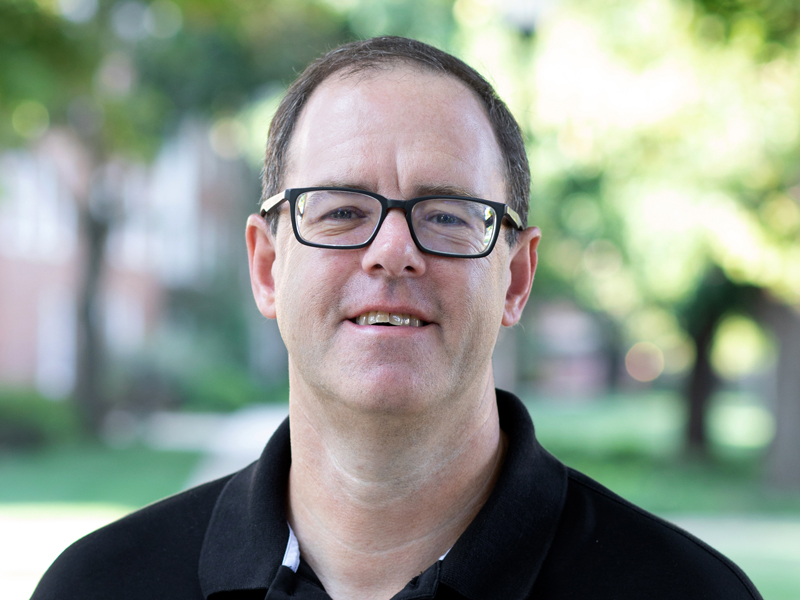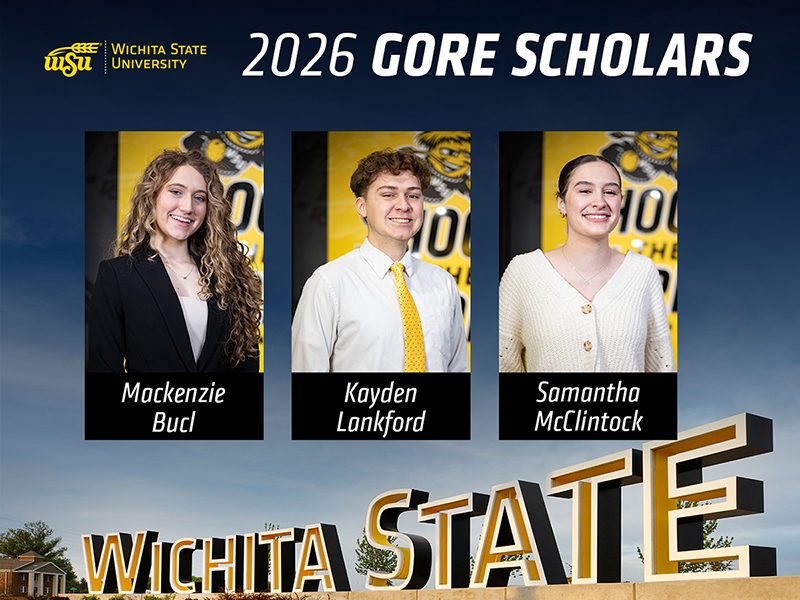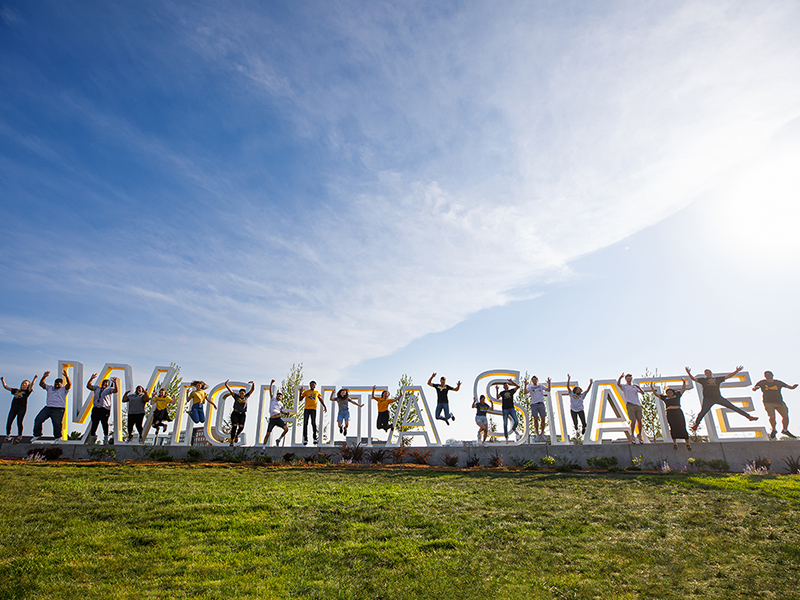President-elect Jay Golden told a story about waiting for a taxi to sum up his introduction to Wichita State University. His observations about changing consumer desires, transportation and the economy also describe the challenges and the history of his new position.
Outside his New York hotel, he looked at the line of taxis. He watched people calling ride-share services. The scene reminded him that universities must cultivate ideas that are efficient, effective, friendly, inexpensive and in demand, even if they disrupt a previously popular way of doing business.
“It dawned on me that those taxis, in many ways, represent higher education,” he said. “We need to adapt. We need to be nimble.”
Golden, currently vice chancellor at East Carolina University, will become Wichita State’s 14th president in January 2020. He is a leading researcher in environmental sustainability and an advocate for applied learning and economic development.
Golden’s predecessors at Fairmount College, the University of Wichita and Wichita State University also faced changes in higher education. Early presidents struggled to keep a small, private college funded. The university joined the state system of higher education in 1964, leading to increased enrollment and growth in academic programs and buildings.
Fairmount presidents such as Nathan Morrison and John Finlayson served in a different era than Harry Corbin, who pushed and prodded the University of Wichita into the state system. Clark Ahlberg oversaw increases in enrollment and buildings, and his papers are preserved in 135 acid-free boxes in Ablah Library’s Special Collections. Donald Beggs and John Bardo, Golden’s immediate predecessor, worked during the Internet age, left fewer paper documents and dealt with declining state support.
“It’s the same story, whether it’s Nathan Morrison, whether it was Finlayson, or whether it was Corbin – it’s money and strategy,” said Jay Price, chair of Wichita State’s history department. “You’re also positioning – Who are we? What is our story and what is our mission?”
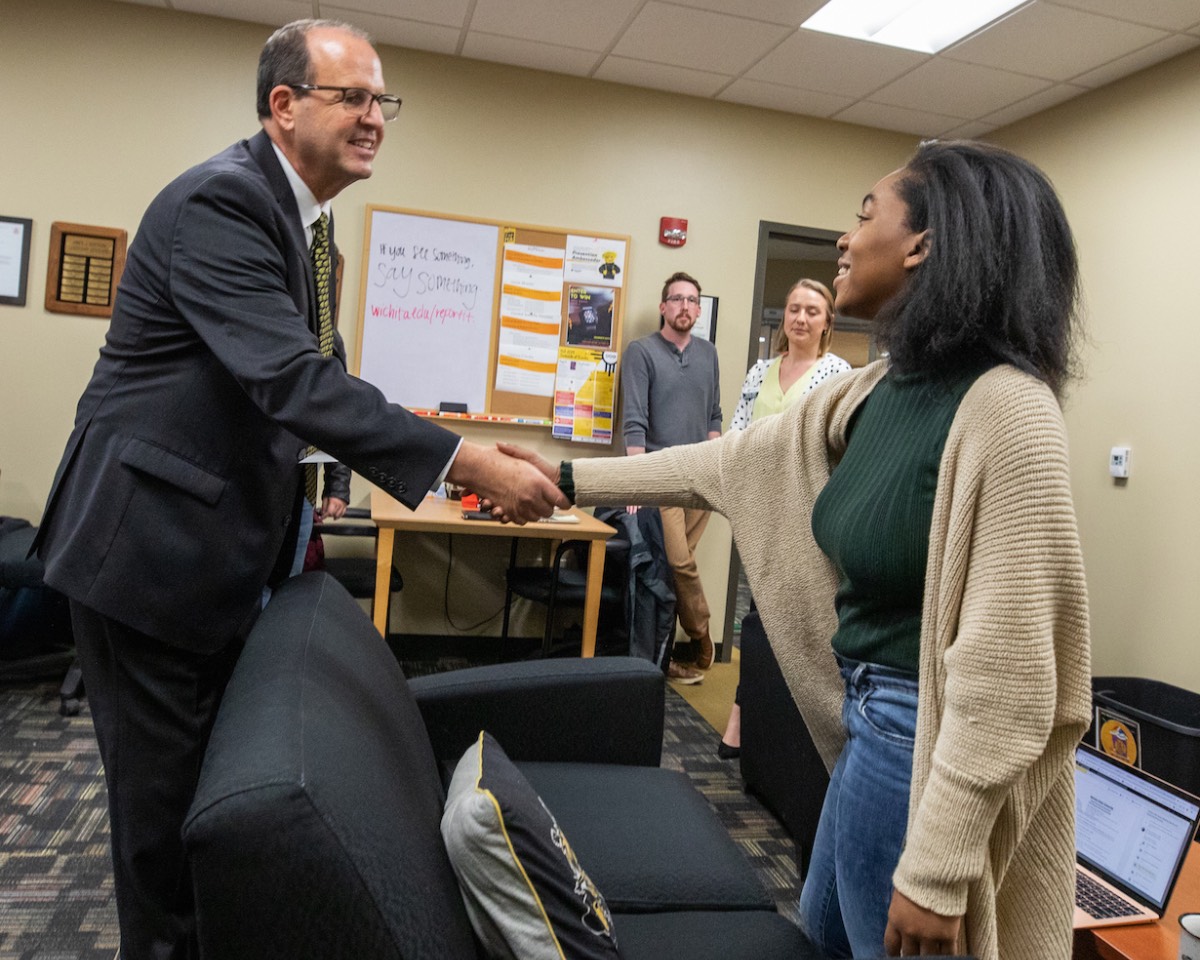 Alyssa Calbert
Alyssa CalbertGolden’s introduction speech indicates he learned much about Wichita State’s history and its mission. He spoke of reducing cost for students, of applied learning, the importance of the humanities and critical thinking, diversity and ties with business.
“Higher education is at a crossroads,” he said. “We see schools closing due to declining enrollment and financial support. I strongly believe we need to make college more affordable. We need to make sure we are preparing students, not just for the jobs of today, but for the professions of tomorrow.”
Mark Hutton, a member of the Kansas Board of Regents, thought of the changing educational world as Golden, 55, spoke. Hutton receives a newsletter that often details the closing of another university. It is with those challenges in mind that the Regents evaluated candidates.
“The state tax dollars just only go so far,” Hutton said. “The old days and the old ways of academics and how you recruit students and how you retain students and relate to them, those days are gone.”
Wichita State’s connections to the community and businesses date to the days when students worked in the wheat fields to earn tuition or took the trolley from downtown to campus. That connection evolved into programs preparing students for careers in aviation, engineering, education, health care, dentistry and many others. Bardo’s emphasis on applied learning and the growth of the Innovation Campus followed that history.
Golden’s background in business and entrepreneurship fits that history, as well.
“Jay has experience with public-private partnerships,” Hutton said. “One of the things we heard from the public and the faculty is that we needed more transparency as we went through those. He knows what that takes and I think he is committed to a higher level of communication and bringing everybody along. It’s the shared governance model. He’s a great consensus-builder.”
Golden spoke about his experiences with North Carolina’s Research Triangle and how universities’ collaboration can help local and regional economies. At Arizona State, he founded and co-directed the Sustainability Consortium, then the world’s largest industry-academia collaboration focused on research and workforce development. It included many of the world’s top 150 manufacturers and brands.
“It’s business, and that was a plus for him,” said Bill Feuerborn, vice-chair of the Board of Regents. “Wichita is unbelievable, because a student can come here, go to school and have a job. That’s what’s so impressive about Wichita State.”
President-elect
Those skills speak to Price’s evaluation of the job as one that is both “head of state” and “head of government.” The university president performs head of state jobs, as the face and leader of the school, and head of government jobs such as budgets and strategic plans.
“A president has to do both,” Price said. “The head of state presidents tend to be the ones that see a vision, articulate a vision and frame where we’re going and why we’re doing what we’re doing. The head of government presidents tend to be maintenance, tweaking the system, they tend to be the folks making sure the systems work right. And we’ve had both of them.”
In January, Golden will take over a campus undergoing dramatic change since Bardo’s tenure started in 2012. New buildings, a rise in enrollment and credit hours, membership in the American Athletic Conference and a desire to make campus a destination for studies, work and leisure time are all part of recent history.
Golden said he wants more of those types of ideas that will make a Wichita State diploma more valuable. Those ideas should be shaped by and include shared governance, efficiency and a strong sense of the university’s history and mission.
“You are empowered, you are required to be creative, big, bold,” he said. “Be true to who we are. We are not going to play the game of ‘Who we do not select and admit to this institution.’ We will rather be judged by how we teach and prepare our students to make them great citizens and successful in society.”


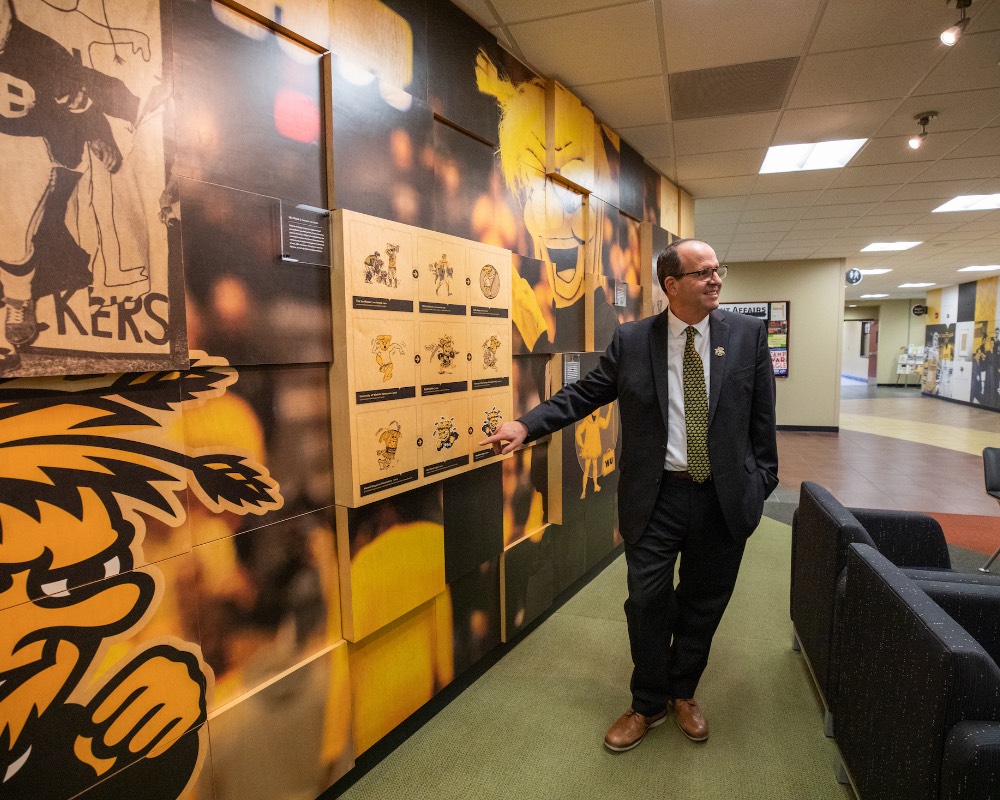 Alyssa Calbert
Alyssa Calbert